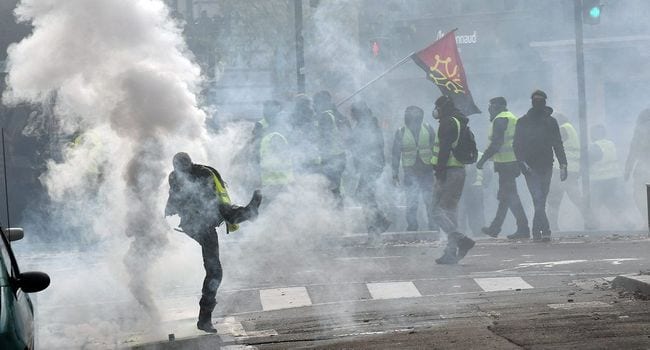In an article published on the Defenseone.com website, Dr. Samantha F. Ravish, holder of the Cyber Chair and Technological Innovation of the Defense and Democracy Foundation, calls fora urgent creation of a plan to resume economic and social activity in the United States, in the case of a massive cyber attack, referring to the “The Day After” plan that the Pentagon developed during the Cold War in the event of a nuclear attack on the whole of American territory.
Indeed, many points today point to the growing and now sufficient capabilities of countries like China or Russia to carry out global cyber operations against the United States, capable of annihilating, for a time, a large part of communication networks, banking networks, as well as electrical power grids. According to the researcher, we must now admit that these countries, and perhaps others, are today capable of carrying out such operations against the United States and its allies, and that beyond the essential protection measures, a disaster recovery plan must be created to minimize the negative effects of such an attack if necessary.

Indeed, the resilience of the civilian population is, as a general rule, largely absent from the documents governing Western defense policies. According to estimates, and depending on the country, the absence of communication networks and electricity supply will lead to the first movements of crowds between a few hours and a few days, before quickly transforming into urban riots, mass exoduses, looting... The large Cities are the most vulnerable, their food supply being managed on a just-in-time basis, and reserves of non-perishable personal food no longer being a household priority today. Hospitals will also be very threatened, even if they now have an independent power supply allowing care to be maintained for a few days. On the other hand, medications, like the presence of nursing staff, will quickly become a problem. The dematerialization of payments and the reduction in cash reserves will also quickly pose significant tensions, such as fuel shortages. It is clear that the resilience of citizens, homes and cities is very problematic today, whether in the face of a military or cyber attack.
This vulnerability has not escaped other countries, however. In 2017, Vladimir Putin launched a plan aimed at strengthening the overall resilience of the Russian population and economy, in the face of different types of attacks, whether cyber, conventional or nuclear. Public services, Oblasts and cities, have been called upon to prepare procedures in the event of disasters, and to raise awareness among the population, which is at the heart of this strategy. The Russians were therefore called upon to always have, at home, a week's supply of food, candles, batteries, water, and the various equipment essential to their survival over this period. Companies were called upon to be able to work in a “war economy”, with short circuits and local supplies.

As for the Russian state, it has taken measures to be able to disconnect the Russian domestic internet network from the global network. The computers of public and security services are also migrated to national equipment, having their own operating system less exposed to viruses than commercial OS can be. Finally, civic resilience is widely discussed and highlighted, whether in schools or in numerous television programs. The Chinese authorities have also put in place similar procedures and plans, also relying on a population more sensitive to these risks than many Westerners.
Because, and beyond the call launched by Samantha F. Ravish for the implementation of technological solutions to a possible cyber attack, it is, and above all, the very low resilience of Western populations which constitutes today the greatest threat, and the greatest weakness, of our countries. Nuclear deterrence will be of little importance if, within a few days of a cyber attack, half the population is starving, and the other half has taken up arms...
It is therefore necessary, and urgent in view of the proven threats, to initiate a reflection on the measures to be implemented to raise awareness among the French and European populations of these threats, and to provoke a massive awareness of them vis-à-vis -with regard to current developments in international security, and its consequences. Awareness which, as such, can only benefit the country's defense effort, and therefore the country's overall resilience in the face of future security challenges.

